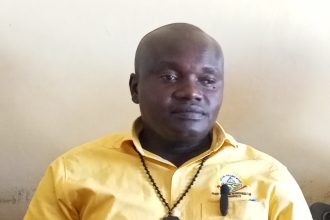(ADDIS ABABA) – Ethiopian Members of Parliament have chosen Foreign Minister Taye Atske Selassie as the country’s new president. The election, which took place on Monday, October 7, 2024, marks a change in leadership as Atske Selassie replaces Sahle-Work Zewde, a highly respected diplomat who had served in the largely ceremonial role since 2018.
Sahle-Work Zewde, 74, was Ethiopia’s first female president, and her tenure helped bolster the image of Prime Minister Abiy Ahmed’s administration in its early years. She was seen as a symbol of Ethiopia’s push for gender equality, coming into office shortly after Abiy introduced significant political reforms, including the establishment of a gender-balanced cabinet.
Sahle-Work’s presidency aligned with Abiy’s vision for a modernized and internationally recognized Ethiopia. Her leadership also coincided with Ethiopia’s 2018 peace agreement with Eritrea, which earned Abiy the Nobel Peace Prize. However, the country’s international reputation was later tainted by internal conflicts, particularly the Tigray war between 2020 and 2022, which resulted in human rights violations and sanctions from the United States.
With Sahle-Work stepping down, Tanzania now remains the only African country with a female head of state, President Samia Suluhu Hassan.
Taye Atske Selassie, 68, who was appointed as Foreign Minister in February 2024, will now serve as Ethiopia’s fifth president under the country’s current constitution, adopted in 1995. He brings to the presidency significant diplomatic experience, having previously served as Ethiopia’s ambassador to both the United Nations and Egypt. His new role, while largely symbolic, will provide him with a platform to represent the country in international forums and support national unity during challenging times.
As Ethiopia continues to grapple with ethnic tensions and economic challenges, Atske Selassie’s presidency will play an important role in maintaining the balance between Ethiopia’s diverse political interests. While the prime minister holds executive power, the president is seen as a figure of national unity.
Under the Ethiopian constitution, the president can serve two six-year terms. Atske Selassie’s presidency comes at a critical time, as the country seeks to rebuild its international relations following the fallout from the Tigray conflict and ongoing ethnic unrest in other regions.




















